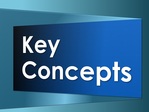|
Feeling of knowing
Sense of Certainty Meaning Maintenance |
|
|
| ||||||||
|
|
Heine, S. J., Proulx, T., & Vohs, K. D. (2006). The meaning maintenance model: on the coherence of social motivations. Personality and social psychology review an official journal of the Society for Personality and Social Psychology. 10(2), 88-110.
| ||||||||
Belief Persistence
|
| ||||||||
|
Taber, C.S. and Lodge, M. 2000. Motivated skepticism in the evaluation of political beliefs. Presented at the
2000 meeting of the American Political Science Association.
| ||||||||
|
|
|
|
|
|
|
|
| ||||||||||||||
|
| ||||||||
|
Ulrick Ecker
| ||||||||
|
|
|
|
Dogmatic and Rigid Thinking
|
|
|
|
|
Duncker, K. (1945). On problem solving. Psychological Monographs, 58:5 (Whole No. 270)
|
